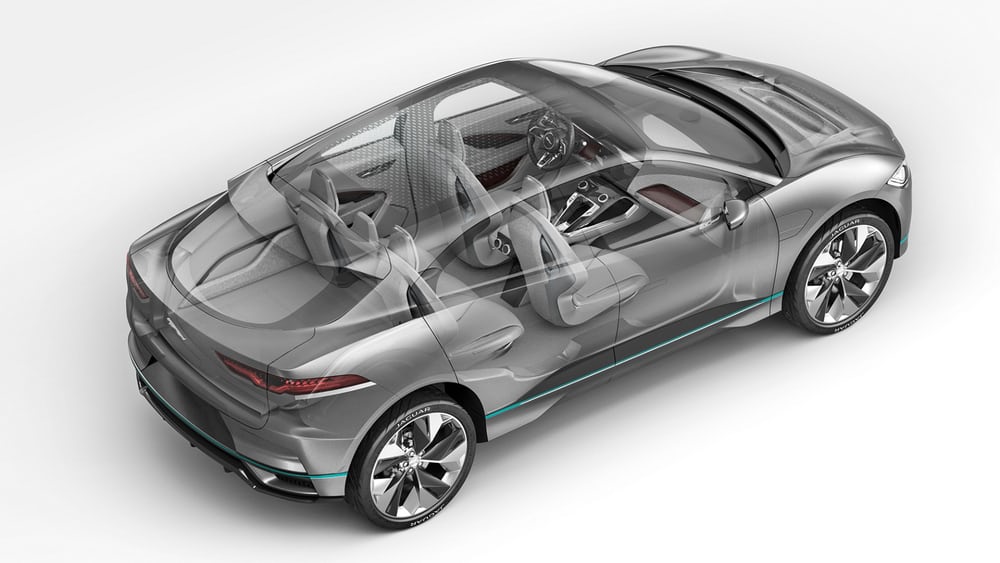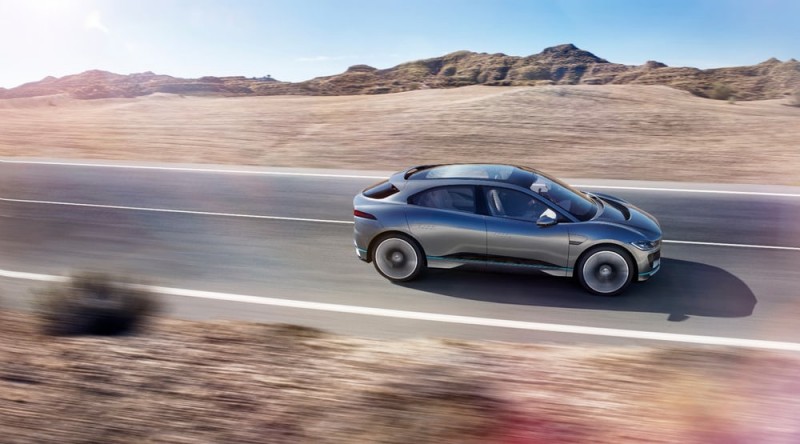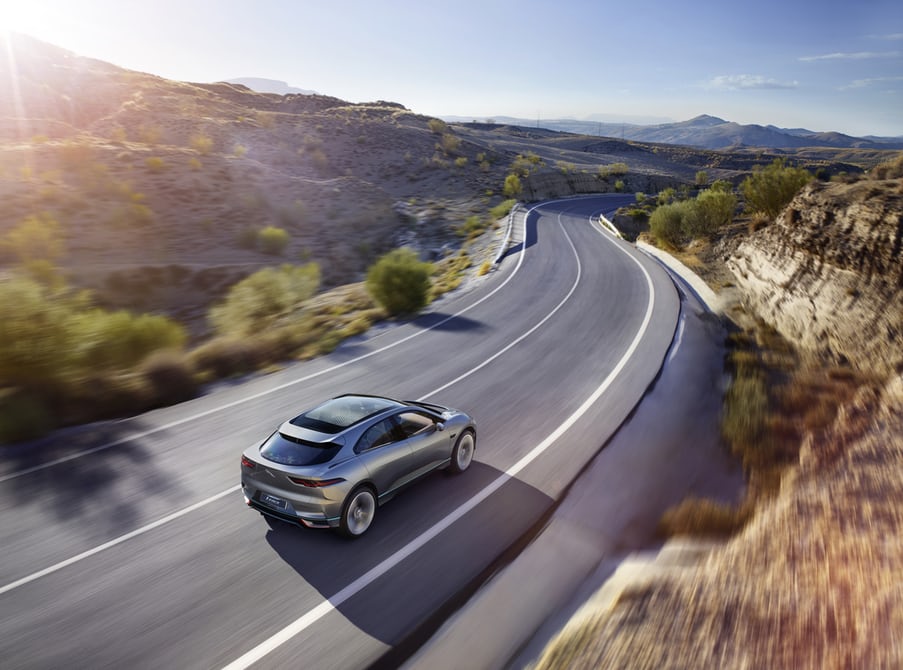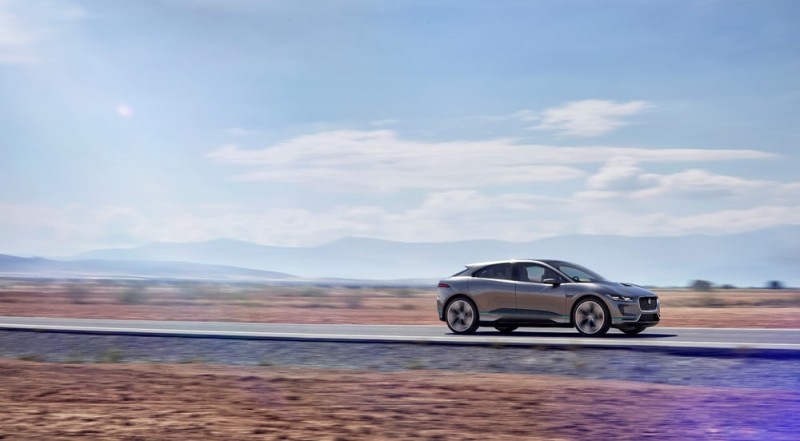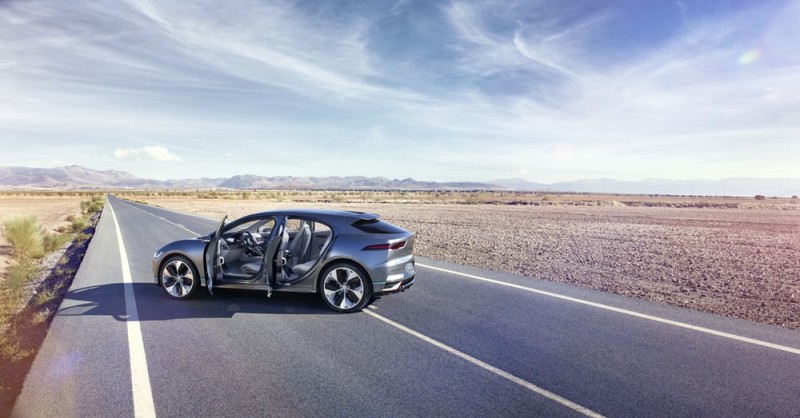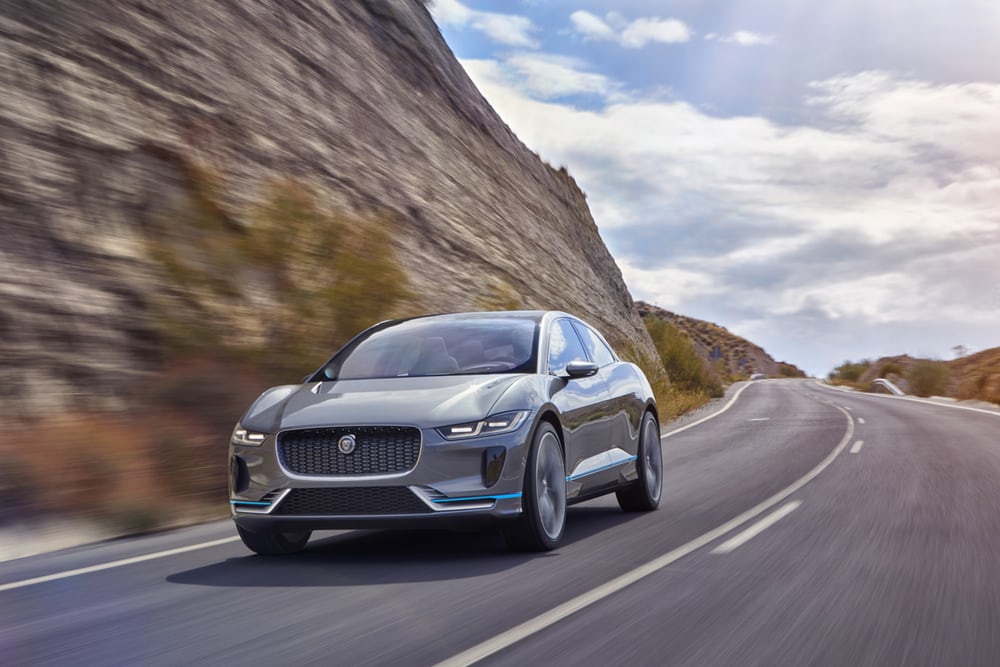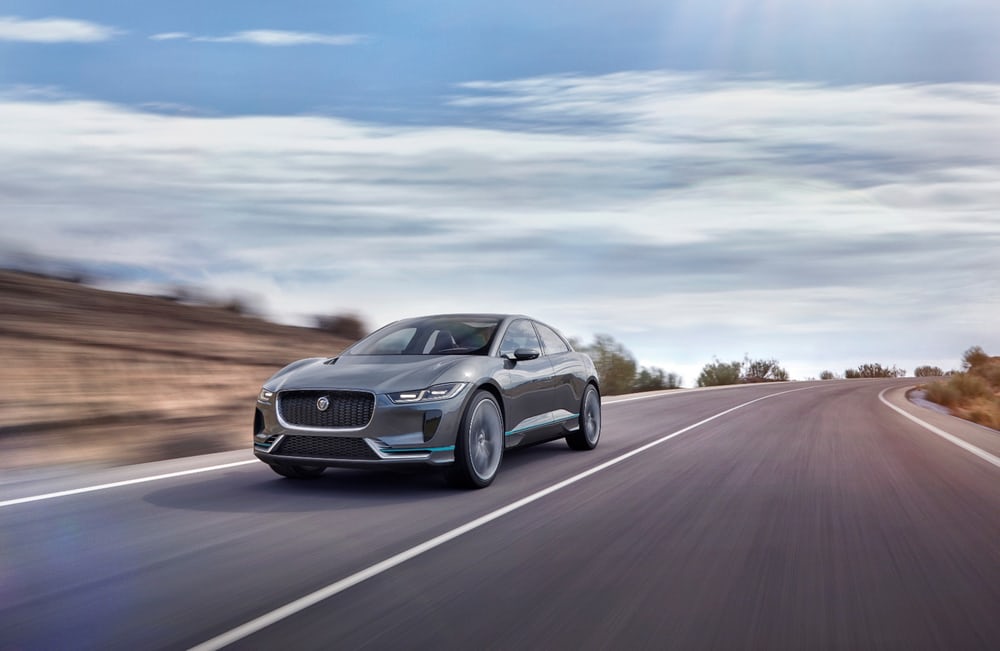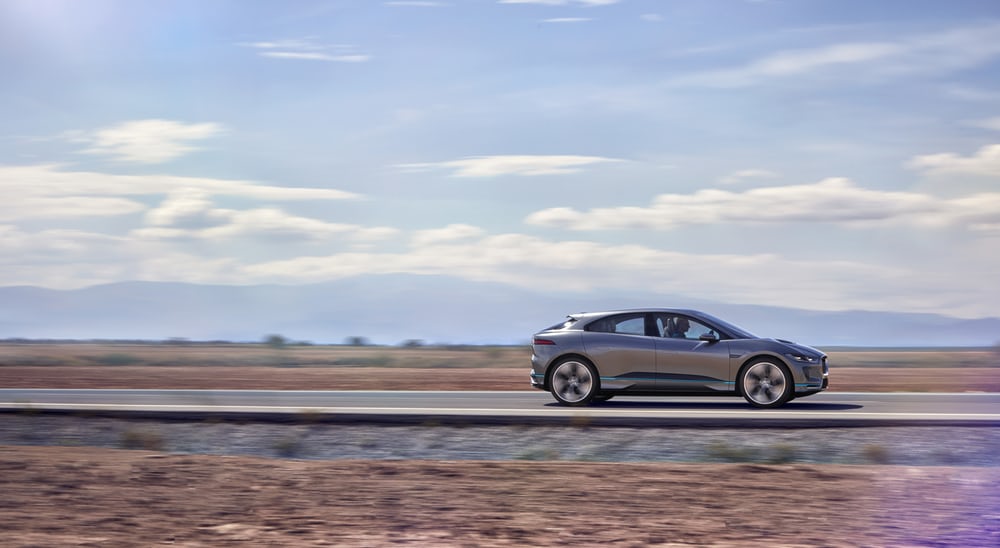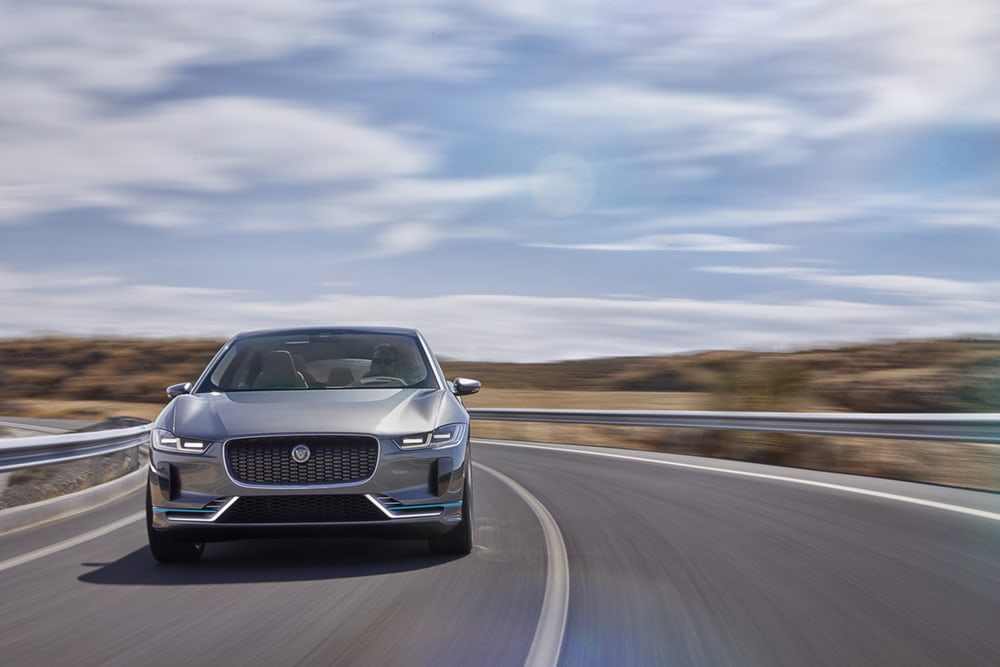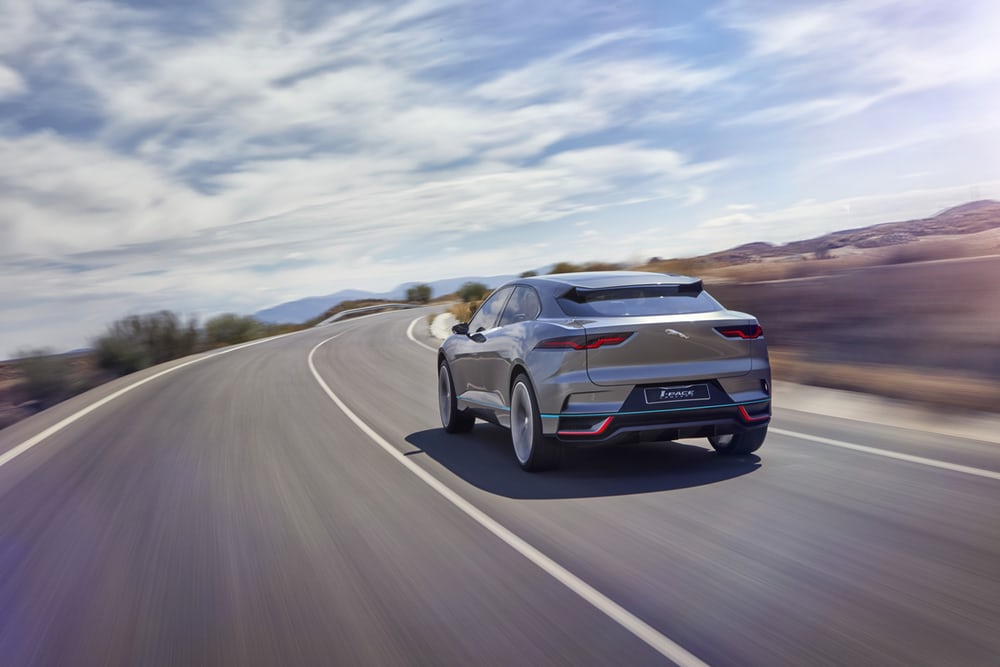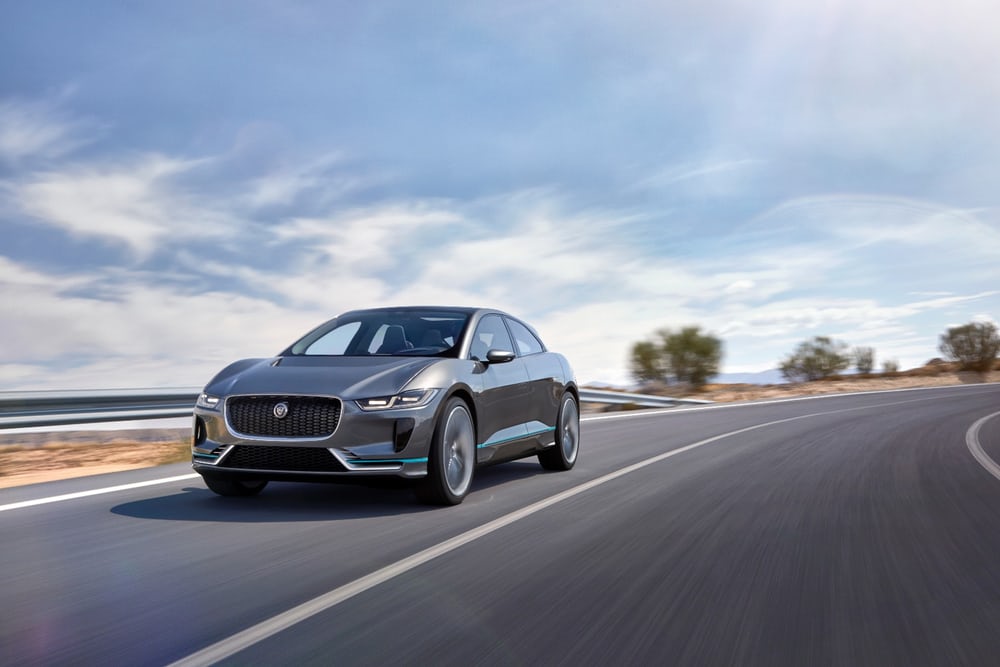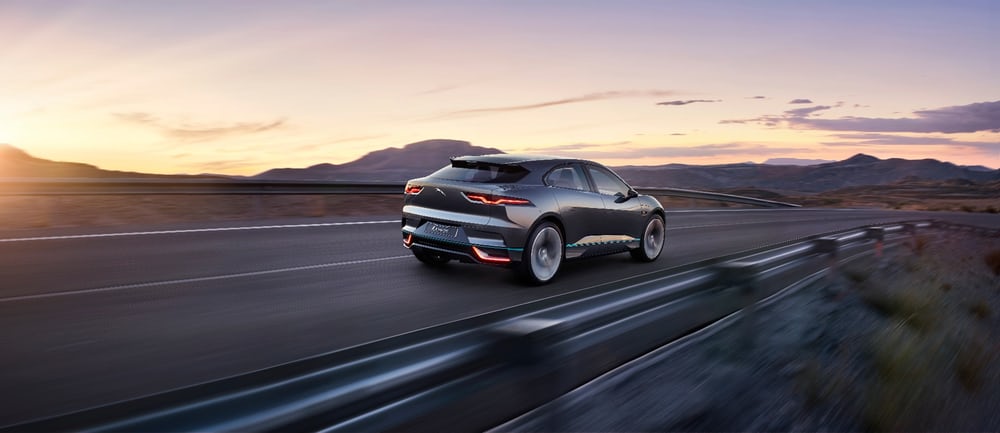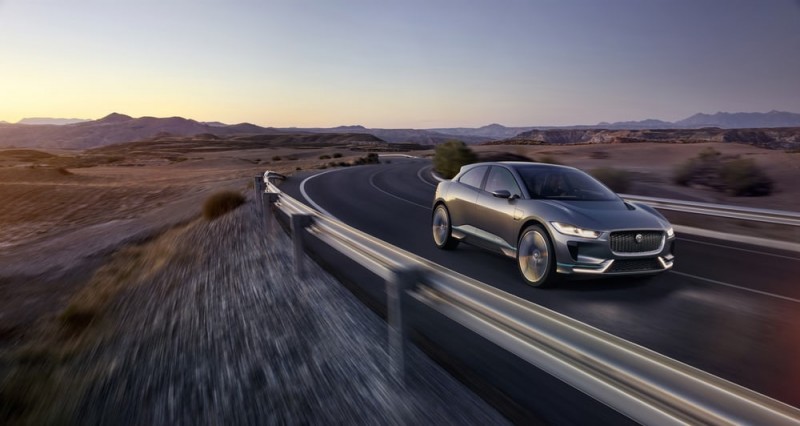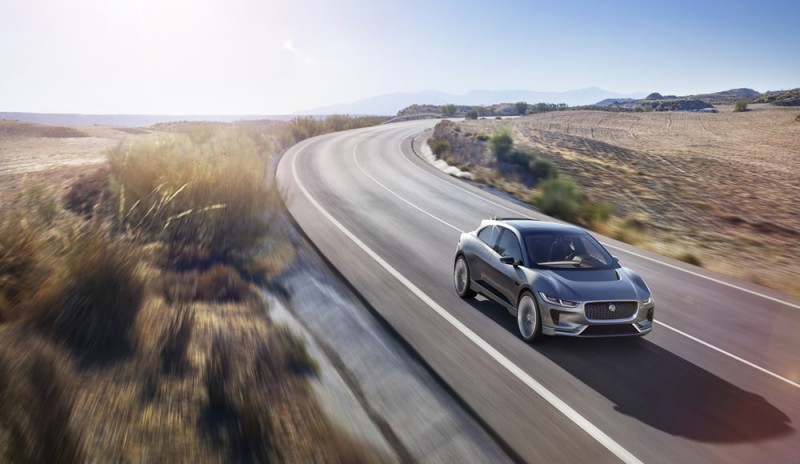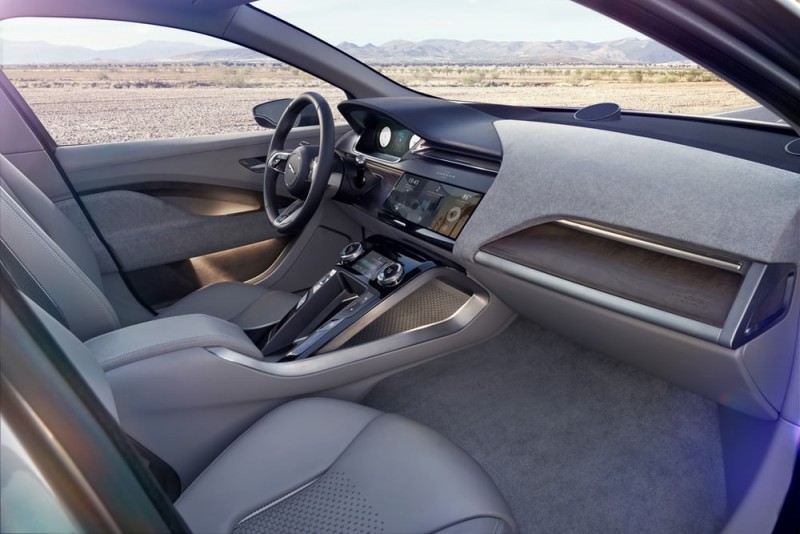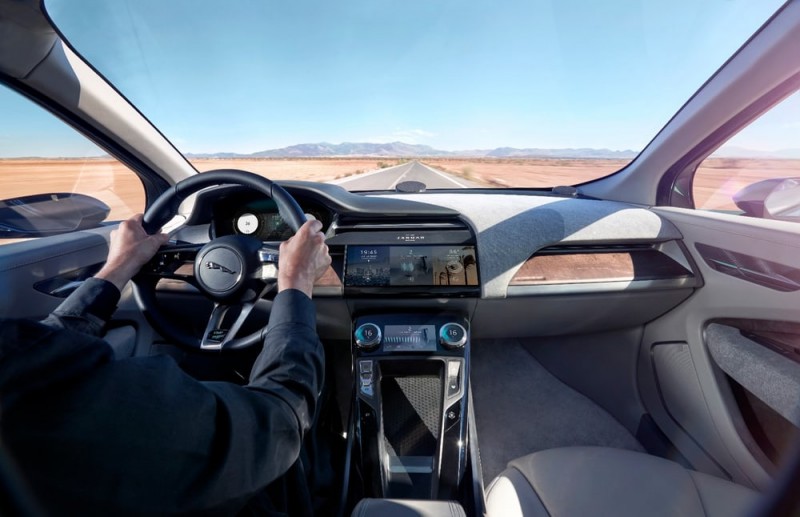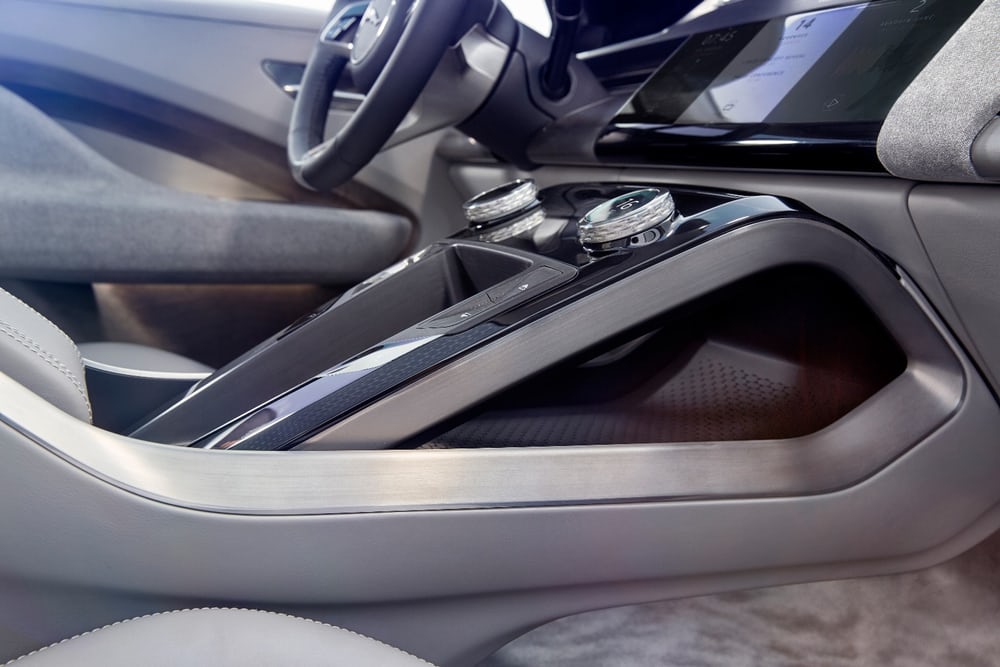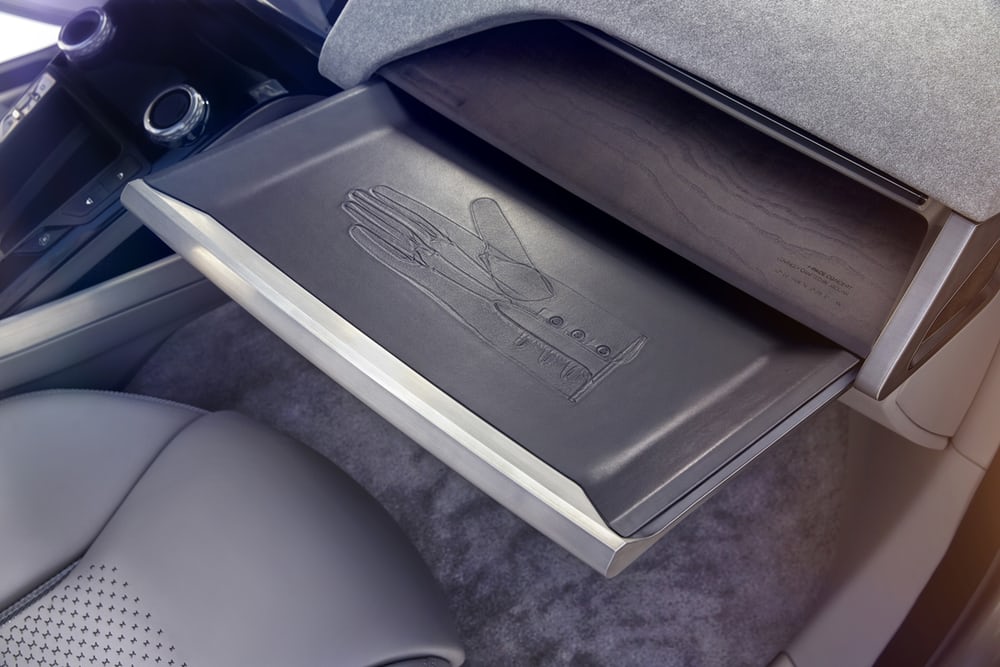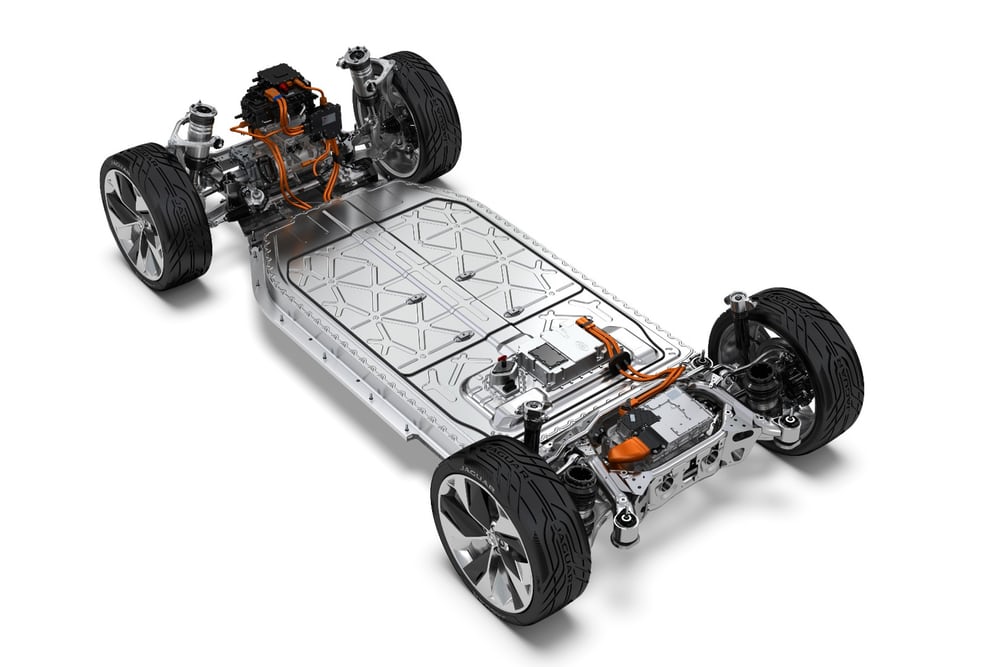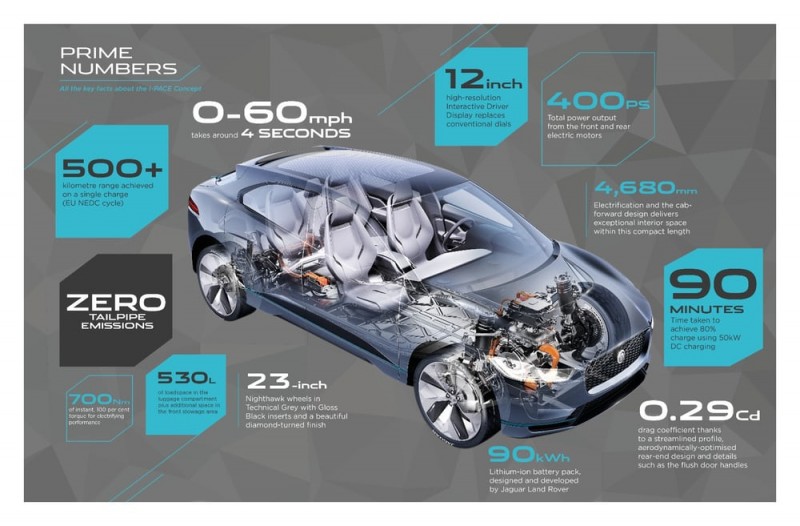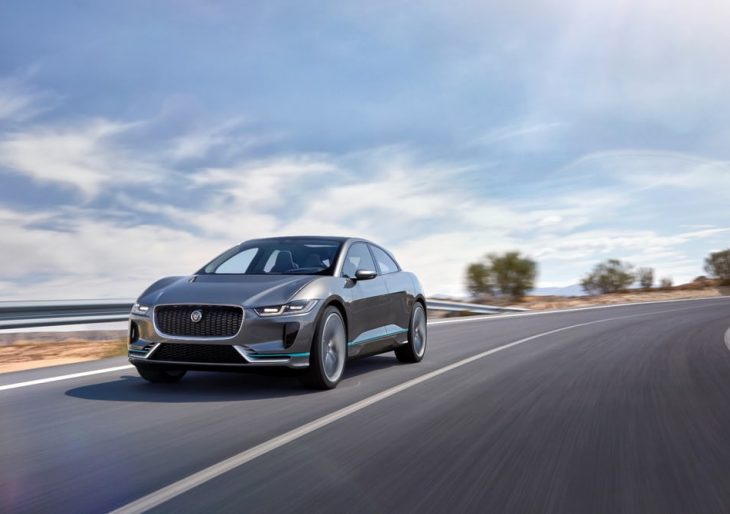This foray into luxury EV design isn’t anyone’s idea of a series of compromises. With 395-horsepower pushing 516 foot-pounds of torque, and a four-second dash to 60 mph, the I-Pace AWD concept car from Jaguar means business. Also onboard: ample leg- and head-room, a 311-mile range via an ingenious liquid-cooled 90 kWh lithium-ion battery, and luxurious appointments such as a panoramic moonroof and large touchscreen. The I-Pace is well named.
Ian Callum is behind the design. The problem was, of course, not only how to make a luxury E-car as attractive as any other car in that class, but also how to make it Jaguar-distinctive; part of the cachet of Jag ownership has classically been the instantly identifiable look of a Jag, easily recognizable from a distance.
Callum’s vision is sleek, fleet-looking, sexy, and unique; it may not have quite the drag coefficient of certain German offerings, but, then, the Jaguar name has always been associated with luxuriant touring as well as accelerating power. So, though the I-Pace’s roomy, 5-passenger interior indicates the English touring aesthetic is alive and well, the car’s lines are unusually exuberant. Artful equipoise, Mr. Callum.
What makes the car special as an EV offering, though, is its electric architecture, which may be used in SUV and sedan models; the I-Pace suggests both sport-utility and sedan sensibilities, and does so gracefully. The wheelbase is designed to be the best of both worlds, tight enough for dexterity, but long enough to provide a spacious interior. The dramatic lines echo recent Jaguar efforts; the company surely used some of the better ideas of the F-Pace and C-X75 in the overall approach to the I-Pace, while allowing it a singular identity.
I-Pace production has not yet been finalized; Jaguar is still in the process of collating public opinion, ironing out a features list and, one can assume, dealing with the pesky little problems that arise in the last stages of new product development. But Mr. Callum confirms the I-Pace is not just a concept at this stage, and that a production version will be in dealerships in 2018, beating competitor Mercedes’s own EV effort to the sales floor by a full two years.
